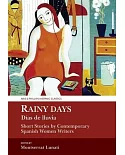The Cold of May Day Monday offers an indvidual view of the history of Irish literature from its very earliest phases up to the present day, more or less, with discussions of major
writers such as Friel, Heaney, Derek Mahon, McGahern, and John Banville. Robert Welch traces the roots of Irish literature in myth and legend and explores ancient and pre-Celtic deposits and
remembrances; saga literature, as well as devotional writing; the bardic heritage and the cycles of tales of early Ireland; the importance and survival of folklore; and the later phases of
Irish literature, from the seventeenth century onwards. Welch frames his study around themes and clusters rather than chronology, seeking to retain coherence by means of a sustained attention
to the thematic strains. Substantial attention is paid to the figure of the Hag in Irish literary culture. The often deeply troubled relations between Ireland and England inevitably call for
treatment as well, most notably in chapters examining the Great Famine and its consequences for literature and cultural expression. Yeats is one of the key figures, as are O’Casey and Synge,
but the focus is on their literary output, not their political experiences (though these are not overlooked).Robert Welch offers a readable account of one of a fascinating literary history,
providing insights into the connections between Irish legend and literature, and accounts of the some of the best Irish writers of the twentieth century.





















